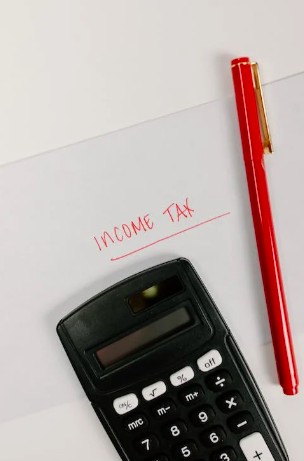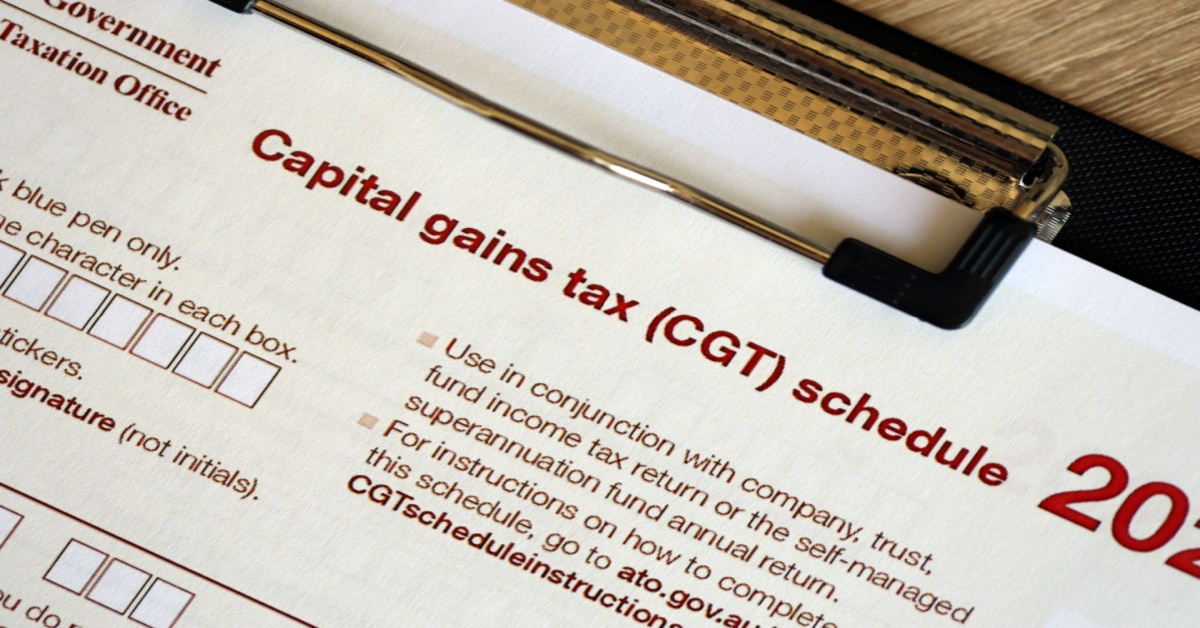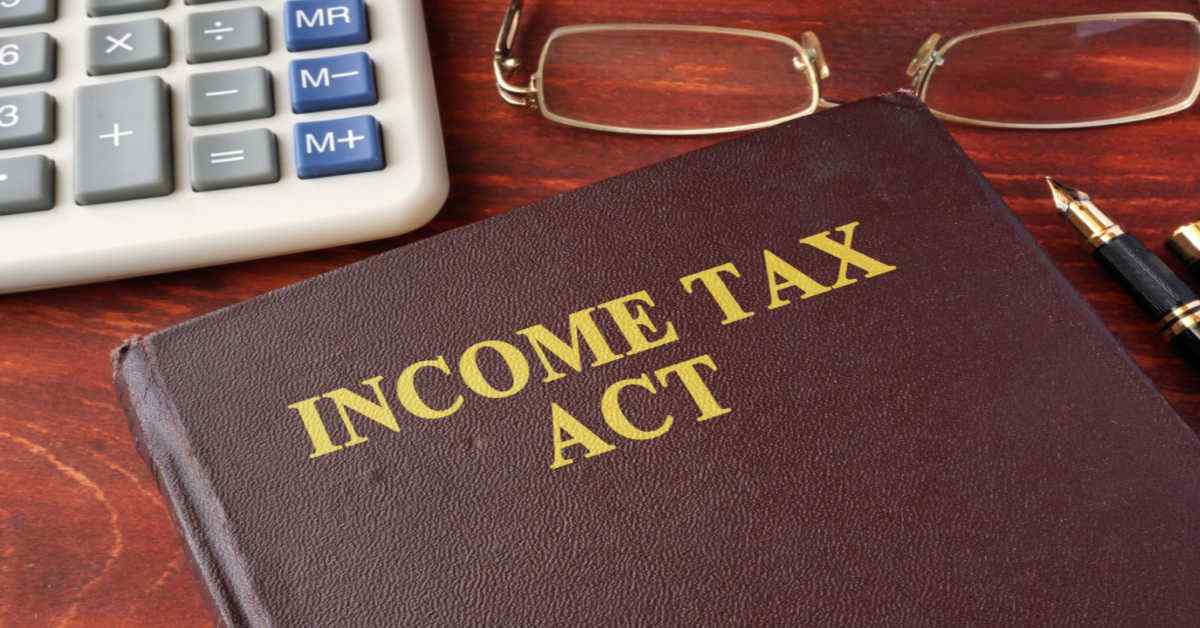Table of Contents
Quality Service Guarantee Or Painting Free

Get a rental agreement with doorstep delivery

Find the BEST deals and get unbelievable DISCOUNTS directly from builders!

5-Star rated painters, premium paints and services at the BEST PRICES!
Loved what you read? Share it with others!


Submit the Form to Unlock the Best Deals Today
Check Your Eligibility Instantly

Experience The NoBrokerHood Difference!
Set up a demo for the entire community
Section 50C of the Income Tax Act 1961: Key Tax Implications for Property Transfers in 2025
Table of Contents
Section 50C of Income Tax Act 1961 defines the process for calculating capital gains from the sale of immovable properties. It specifies that if the sale price is lower than the stamp duty value, the latter will be considered for tax purposes. Have you ever wondered if selling your property could lead to an unexpected tax bill? Section 50C might hold the answer. It ensures that the higher value, either the sale consideration or stamp duty value, will be taxed, potentially increasing capital gains liability. In this blog, we’ll discuss the intricacies of Section 50C and its implications.
What are Capital Gains?
According to the Income Tax Act of 1961, any profits or gains that arise from the transfer of a capital asset in the previous year are chargeable to income tax under the heading "Capital gains."
Capital gains are deemed the income of the previous year in which the transfer occurred. Capital gains are the profits or gains that arise from the sale of a capital asset.
Quality Service Guarantee Or Painting Free

Get a rental agreement with doorstep delivery

Find the BEST deals and get unbelievable DISCOUNTS directly from builders!

5-Star rated painters, premium paints and services at the BEST PRICES!
When selling a property, the difference between the sale price and the indexed acquisition cost is subject to capital gains tax. However, some people were avoiding this tax by under-reporting the value of the property and paying some of the sale price in cash. This led to a loss for the government and the growth of unaccounted black money in society. To tackle this issue, the government introduced Section 50C in 2002, which mandates that the sale value of real estate cannot be lower than the value assessed by the government for stamp duty purposes.
Section 50C of the Income Tax Act with Example
Section 50C of the Income Tax Act of 1961 is a provision that deals with the computation of capital gains tax on the sale of land, buildings, or both, which are held as capital assets. This provision was introduced by the Finance Act of 2002 and became effective on April 1, 2003. The primary objective of Section 50C is to prevent underreporting or undervaluation of the sale consideration of the property.
According to this section, the value of the consideration received or accruing as a result of the transfer of land, building, or both should not be less than the value adopted or assessed by the Stamp Valuation Authority (SVA) to levy stamp duty on property registration. This value is the guidance value used to determine any undervaluation of land or buildings in the sale agreement.
Suppose the sale consideration received or claimed to be received is less than the value assessed by the SVA. In that case, the value estimated by the SVA is considered the total value of consideration when calculating capital gains.
Example for Section 50C of Income Tax Act 1961
Ahen sold his residential property to Rohan for ₹75 lakhs.
Stamp duty value of the property: ₹85 lakhs
Indexed cost of acquisition: ₹30 lakhs
Tax rate on long-term capital gain: 20%
As per Section 50C, the sale value for tax purposes will be considered as ₹85 lakhs, not ₹75 lakhs.
Long-term capital gain (LTCG): ₹85 lakhs - ₹30 lakhs = ₹55 lakhs
Tax on LTCG: ₹55 lakhs × 20% = ₹11 lakhs
Ahen will pay ₹11 lakhs as a tax on long-term capital gains despite receiving only ₹75 lakhs from the sale.
Section 50C(1) of Income Tax Act
Section 50C (1) of the Income Tax Act states that if an immovable property (land or building or both) is transferred for a value less than the stamp duty value, then:
The stamp value shall be deemed the full value of consideration for computing profits and gains. This provision applies to transfers made on or after April 1, 2005. The actual sale consideration is disregarded if it’s lower than the stamp duty value. This section aims to prevent under-reporting of property transactions and corresponding tax evasion.
If the agreement and registration dates differ, the stamp duty value on the agreement date may be used. This exception applies only if part of the sale price is received through account payee cheque, bank draft or electronic clearing system.
The actual sale price will be considered if the stamp duty value is within 105% of the sale price. This applies if the transfers are made on or after April 1, 1998, as amended by Acts 20 of 2002, 33 of 2009, and Finance Act 2018.
Section 50C(2) of Income Tax Act
Section 50C (2) of the Income Tax Act provides relief to taxpayers who believe that their property's stamp duty value is higher than their actual fair market value. Section 50C (2) states that the provisions of subsection (1) shall not apply where the assessee claims that the stamp valuation authority has adopted a value exceeding the property's fair market value. If the assessee provides evidence to support the claim, the assessing officer may refer the matter to the valuation officer. The valuation officer’s estimate of the property’s fair market value shall be considered.
When is Section 50C of the Income Tax Act of 1961 Applicable?
Sec 50C of the Income Tax Act 1961 is applicable only if:
- Section 50C applies to the transfer of land, buildings or both
- The transferred asset must be held as a capital asset
- It doesn't matter whether the asset is a long-term or short-term capital asset
- The asset can be either depreciable or non-depreciable
What is the Stamp Valuation Authority (SVA)?
The Stamp Valuation Authority (SVA) determines the value of stamp duty, a tax levied on the registration of property transactions. This valuation is considered when calculating capital gains. In most cases, the SVA uses a guidance value to calculate the value of land or apartments based on the property's total market value.
Section 50C of the Income Tax Act of 1961 uses the value adopted by the SVA to levy stamp duty on property registration as a guide to determine whether the land or building in the sale agreement is undervalued. Suppose the sales consideration received or receivable is lower than the value adopted by the SVA. In that case, the SVA value further reduced by the cost/indexation is considered for calculating the capital gain.
How to Calculate Section 50C Capital Gain?
Here is how to calculate the section 50C capital gain:
| Particulars | Amount |
| The full value of the consideration (the higher: sale value/ stamp duty value) | xxx |
| Less: Expenditure concerning the transfer | (xxx) |
| Net Consideration | XXX |
| Less: Cost of acquisition | (xxx) |
| Less: Cost of improvement | (xxx) |
| Capital Gains/ loss | XXX |
Note:
- If the Stamp Valuation Authority (SVA) value of the property is not less than 110% of the sale consideration, then the sale consideration will be treated as the full value of consideration for tax calculation purposes.
- In such cases, the capital gain will be calculated by reducing the sale consideration by the indexed acquisition cost without considering the SVA valuation.
Is the Value Set by the Valuation Officer Higher Than the Value SVA?
When a property is sold for a consideration less than the value adopted by the Stamp Valuation Authority (SVA), there can be various genuine reasons for the transaction, such as negotiation, market conditions, or any other relevant factors.
However, in such cases, Section 50C of the Income Tax Act, 1961 comes into play to protect the property value from fluctuations caused by a significant gap between different stages of the sale transaction.
According to Section 50C, if a property's sale consideration is less than the value adopted by the SVA, the deemed consideration for tax purposes will be the value adopted by the SVA. The value adopted by the SVA is the guidance value used to levy stamp duty on the registration of properties.
However, certain considerations are covered under Section 50C of the Income Tax Act, 1961, to safeguard the seller against fluctuations in the property's value caused by a significant gap between various stages of the sale transaction. Thus, if the actual selling price of a capital asset is lower than its value adopted by the SVA for various reasons, Section 50C would protect the seller against undervaluation of the property.
What If a Seller Refuses to Accept the Value SVA Adopts?
When you sell a property, its value is assessed by the Stamp Valuation Authority (SVA) to determine the amount of stamp duty that the purchaser needs to pay. However, sometimes, the value adopted by SVA may not reflect the Fair Market Value (FMV) or may not satisfy the seller.
While the purchaser usually pays stamp duty, the value determined by SVA affects the seller's income tax, which can be significant. If you, as the seller, believe that the value adopted by SVA is inaccurate, you can challenge it under Section 50C before the income tax authority.
The income tax officer will refer the case to a valuation officer who will assess the property's market value. The valuation officer may ask for documents from you and will give you a chance to explain your position. The valuation officer will then issue a written order stating their valuation.
You can appeal to higher authorities if you are still unsatisfied with the valuation. This process allows you to ensure that the value of your property is accurately assessed for income tax purposes.
What if the Value Set by the Valuation Officer is Higher Than the Value SVA Adopts?
If the value set by the valuation officer is higher than the value adopted by the Stamp Valuation Authority (SVA), it will not harm the taxpayer. When a reference is made to the valuation officer, the value determined by the valuation officer or the value adopted by the SVA, whichever is lower, will be taken as the sale consideration for computing capital gains.
For instance, if the SVA adopts a value of Rs. 12,00,000 and the valuation officer determines a value of Rs. 15,00,000, the sale consideration under Section 50C will still be Rs. 12,00,000.
Any referral made to the valuation officer will not affect the taxpayer in any way. For example, if the valuation officer sets the value at Rs. 10,00,000, then the full value of consideration will be Rs. 10,00,000.
The valuation officer is appointed to determine the market value of a capital asset and eliminate any hardship that taxpayers may experience. If the valuation officer finds that the value of the asset is higher than the value declared in the return made by the assessee, the officer will issue a written order stating their valuation after allowing the taxpayer to be heard. Any value the valuation officer determines can also be questioned before higher authorities.
How is the Stamp Duty Value Calculated Under Section 50C?
According to the information available in the search results, Section 50C of the Income Tax Act, 1961, applies only to land or buildings or both. The section uses the value adopted by the Stamp Valuation Authority (SVA) to levy stamp duty on the registration of properties as guidance value to determine the undervaluation of land or buildings, if any, in the sale agreement.
The stamp duty value is to be taken as assessed by the Stamp Valuation Authority. However, the stamp duty on the date of the agreement may differ from the stamp duty value on the registration date.
In such a scenario, two possible cases can arise:
- In Case 1, the stamp duty value on the agreement date should be considered.
- In Case 2, if the stamp duty value on the date of registration is higher than the value on the date of the agreement, then the actual sale consideration can be considered as the full value of consideration.
If the value adopted or assessed or assessable for stamp duty purposes is more than the consideration returned by the assessee, then the value adopted or assessed or assessable for stamp duty purposes will be deemed the full value of consideration.
How is Stamp Duty Value Calculated When the Assessee Disputes the Value Adopted by the Stamp Duty Authority?
When an assessee disputes the value adopted by the Stamp Valuation Authority (SVA), the property's value for stamp duty is determined per Section 50C of the Income Tax Act. Section 50C uses the value adopted by the SVA to levy stamp duty on the registration of properties as guidance value to determine the undervaluation of land or building, if any, in the sale agreement.
There are two possible cases if the stamp duty value on the date of the agreement differs from the value on the date of registration.
Case 1: The stamp duty value on the date of the agreement should be taken.
If the assessee objects to adopting a higher value as fixed by the SVA, the Assessing Officer (AO) is bound to refer the asset's valuation to the Departmental Valuation Officer (DVO) to determine its fair market value.
The DVO, while arriving at the value of a property under Section 50C(2), is bound to consider the drag in its market value caused by a dispute in the title of the property. This is to ensure that the assessee is not unfairly penalised.
It is also proposed to insert an Explanation in the Income Tax Act to provide that for sub-clauses (i) and (ii), "stamp duty value" shall mean the value adopted or assessed or assessable by any authority of the Central Government or a State Government for payment of stamp duty in respect of immovable property.
How Can NoBroker Help?
In conclusion, Section 50C of the Income Tax Act of 1961 was enacted to prevent tax evasion and undervaluation of property transactions. This provision ensures that the actual sale consideration or fair market value of the property is considered for taxation rather than the undervalued or underreported amount.
The provision has been amended over the years to clarify certain ambiguities. Taxpayers are advised to carefully evaluate the provisions of Section 50C while undertaking any property transactions to avoid any potential tax liability or legal consequences.
NoBroker Legal Services can assist with Section 50C of the Income Tax Act, 1961, which deals with property valuation for taxation.
Our team of legal experts can help individuals and businesses navigate this section by providing guidance on the computation of capital gains, fair market value determination, and compliance with legal requirements. Contact NoBroker Legal Services to resolve any disputes related to Section 50C of the Income Tax Act.

Frequently Asked Questions
Ans: Introduced in 2002, Section 50C of the Income Tax Act applicability started from the 1st of April 2003.
Ans: The impact of Section 50C capital gain calculation is significant; it ensures that the property's sale value is not reported below the government's assessed value, thereby affecting the taxable capital gains.
And: Suppose the sale consideration is less than the stamp duty value. In that case, you may challenge the valuation under Section 50C with the Income Tax Authority or accept the stamp duty value for tax purposes.
Ans: Non-compliance with Section 50C can result in potential tax liabilities or legal consequences. It is, therefore, important to ensure compliance with this section to avoid any potential issues.
Ans: Section 50C of the Income Tax Act's latest amendments include modifications to ensure a more accurate assessment of property values, aligning them closer with the current market conditions to prevent undervaluation.
Loved what you read? Share it with others!
Most Viewed Articles

What is TDS on Sale of Property? Rates, Procedures, and Filing Requirements
February 3, 2025
16882+ views

10 Best Property Selling Apps in India: Fast, Easy, and Efficient Property Selling Apps in 2025
January 30, 2025
15706+ views

Capital Gains Tax on Sale of Agricultural Land: Rules, Exemptions, and Savings in 2025
January 31, 2025
15241+ views

Capital Gain Account Scheme (CGAS): Features, Benefits, and How to Open an Account in 2025
January 30, 2025
10425+ views

Section 27 of the Income Tax Act, 1961: Understanding Deemed Ownership
January 31, 2025
9395+ views
Recent blogs in
Capital Gain Tax on Sale of Property: Tax, Key Rules, Rates, Calculation and Exemptions 2025
February 3, 2025 by Kruthi
What is TDS on Sale of Property? Rates, Procedures, and Filing Requirements
February 3, 2025 by Vivek Mishra
Capital Gains Tax on Sale of Agricultural Land: Rules, Exemptions, and Savings in 2025
January 31, 2025 by srivalli susarla
Increase the Value of Your Home: Smart Strategies for 2025
January 31, 2025 by NoBroker.com
Section 54 of Income Tax Act: A Guide to Capital Gains Exemption in 2025
January 31, 2025 by Kruthi




Join the conversation!